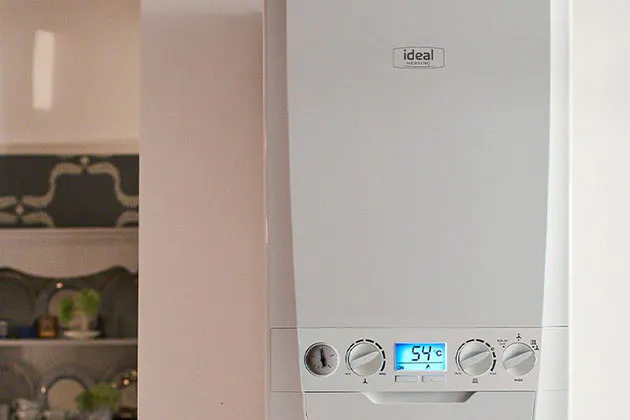Efficient Boiler Replacement
Finding the right boiler for your home isn't just about staying warm—it's about investing in your property's comfort, efficiency, and long-term energy performance. In Dunmow, where winter temperatures can bite, a professionally installed boiler can make the difference between a drafty, expensive-to-heat home and a comfortable, cost-effective living space.
Whether you're replacing an aging heating system or installing a boiler in a new property, the process involves more than simply selecting a unit and connecting pipes. Modern boiler installation requires careful assessment of your specific heating needs, understanding of available technologies, and compliance with stringent safety regulations.

Evaluating Your Heating Needs
Before embarking on a boiler installation in Dunmow, it's crucial to assess your household's heating and hot water requirements. This evaluation ensures you select the most suitable boiler for your property.
Property size plays a significant role in determining your heating needs. Larger homes typically require more powerful boilers to maintain comfortable temperatures throughout. Conversely, smaller properties may benefit from more compact, efficient units.
Insulation quality is another critical factor. Well-insulated homes retain heat more effectively, potentially allowing for a smaller boiler capacity. Poorly insulated properties may necessitate a more robust heating system to compensate for heat loss.
The number of occupants in your household directly impacts hot water demand. Families with multiple bathrooms or high hot water usage patterns should consider systems capable of meeting peak demand without compromising performance.
By carefully considering these factors, you can narrow down your boiler options and ensure your new installation meets your specific needs.
Choosing the Right Boiler Type
Homeowners have several boiler types to choose from, each with distinct advantages:
Combi Boilers: These units provide both heating and hot water on demand, without the need for a separate water tank. Combi boilers are ideal for smaller homes with limited space and moderate hot water requirements. They offer excellent energy efficiency but may struggle to meet high simultaneous demand in larger households.
System Boilers: These boilers work with a separate hot water cylinder, making them suitable for properties with higher hot water demands. System boilers are more efficient than conventional models and can be easily integrated with solar thermal systems for enhanced sustainability.
Conventional Boilers: Also known as regular or heat-only boilers, these systems use both a hot water cylinder and a cold water storage tank. They're well-suited for large properties with multiple bathrooms and can handle high hot water demand. However, they require more space and may be less energy-efficient than modern alternatives.
When selecting a boiler type, consider your property's layout, hot water usage patterns, and future needs to ensure long-term satisfaction with your choice.
Site Inspection and Preparation
A thorough site inspection is essential before commencing boiler installation. This process identifies potential challenges and ensures compliance with safety regulations.
During the inspection, a Gas Safe registered engineer will assess:
- Available space for the new boiler and associated components
- Existing pipework and its compatibility with the new system
- Ventilation requirements to ensure safe operation
- Flue positioning options in compliance with current regulations
- Electrical supply adequacy for the new boiler
Proper preparation may involve:
- Clearing the installation area of obstructions
- Upgrading electrical circuits if necessary
- Addressing any damp or structural issues that could affect the installation
- Ensuring adequate access for installers and equipment
Thorough preparation minimises disruptions during installation and helps ensure a smooth, efficient process.
The Boiler Installation Process
The boiler installation process typically involves several key steps:
- Removal of the old boiler: This includes draining the system, disconnecting gas and electrical supplies, and safely removing the existing unit.
- Mounting the new boiler: The installer secures the new boiler in place, ensuring it's level and properly supported.
- Connecting water supply lines: This involves fitting new pipework or adapting existing connections to suit the new boiler.
- Installing the flue: Proper flue installation is crucial for safe exhaust venting. The installer will determine the most suitable route and ensure compliance with regulations.
- Wiring electrical connections: The boiler is connected to the property's electrical supply, often requiring a dedicated circuit.
- Fitting controls: Modern boilers typically include advanced control systems, which are installed and configured at this stage.
- Flushing and filling the system: The heating system is thoroughly flushed to remove debris and filled with water, often treated with a corrosion inhibitor.
- Gas connection and testing: The boiler is connected to the gas supply, and comprehensive leak tests are conducted to ensure safety.
Throughout the installation, the engineer will adhere to strict safety protocols and building regulations to ensure a compliant and efficient system.
Post-Installation Testing and Education
Once installation is complete, rigorous testing is essential to verify the boiler's performance and safety:
- Pressure testing: Checks for leaks in the system under operating pressure.
- Combustion analysis: Ensures the boiler is burning fuel efficiently and safely.
- Controls testing: Verifies that thermostats, timers, and other control systems function correctly.
- Hot water testing: Confirms adequate hot water flow and temperature.
- Heating system balancing: Ensures even heat distribution throughout the property.
Following successful testing, the installer should provide comprehensive education on operating your new boiler. This typically covers:
- Basic operation and control settings
- Programming heating schedules
- Adjusting hot water temperature
- Recognising warning signs of potential issues
- Maintenance requirements and schedules
Understanding these aspects helps homeowners maximise efficiency and prolong the lifespan of their new boiler.
FAQs
Contact us for Boiler Installation in Dunmow
If you require a boiler installation service throughout Essex, including Dunmow, Saffron Walden, Bishops Stortford and Chelmsford, call us on 07956575049.


